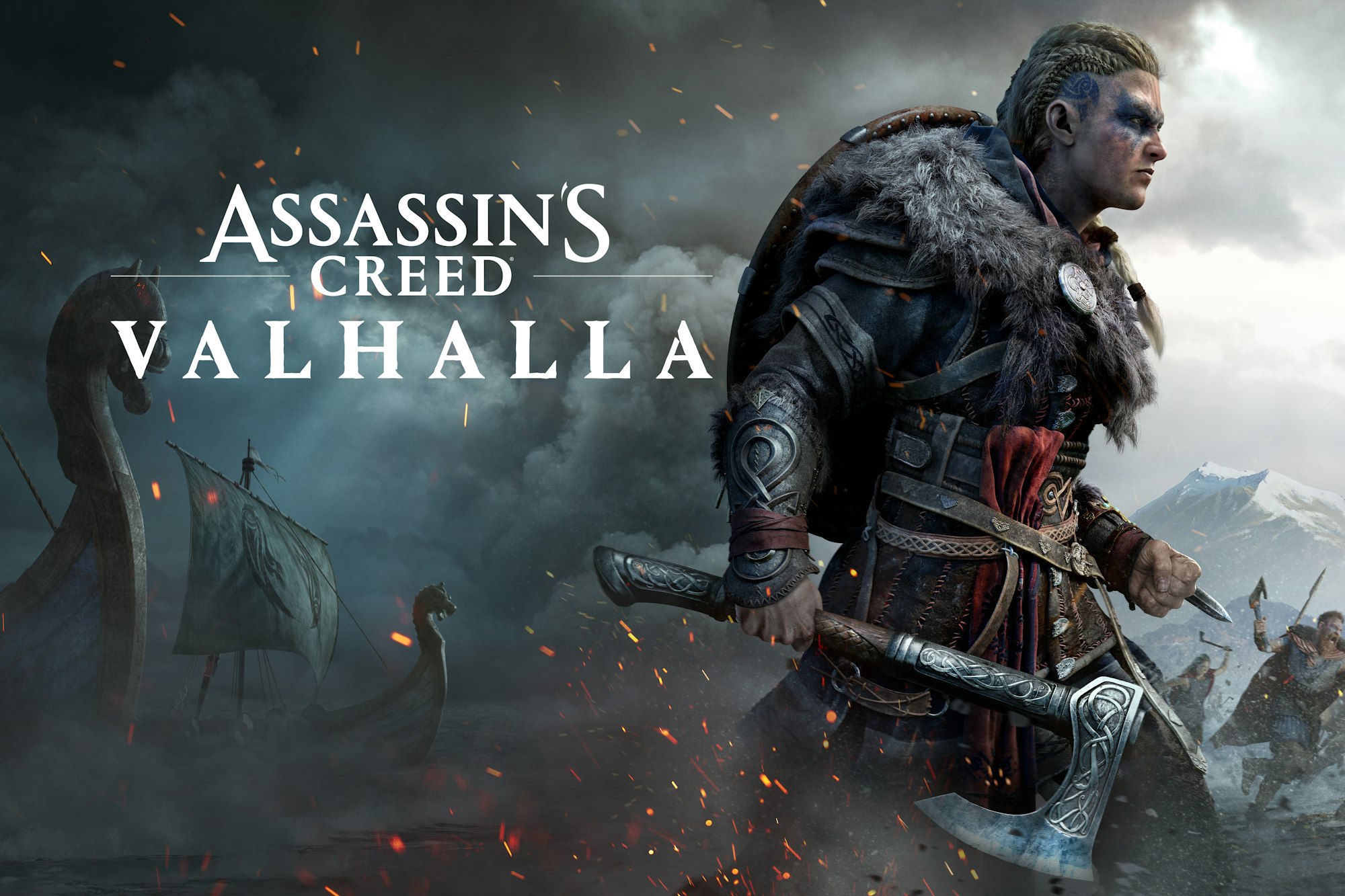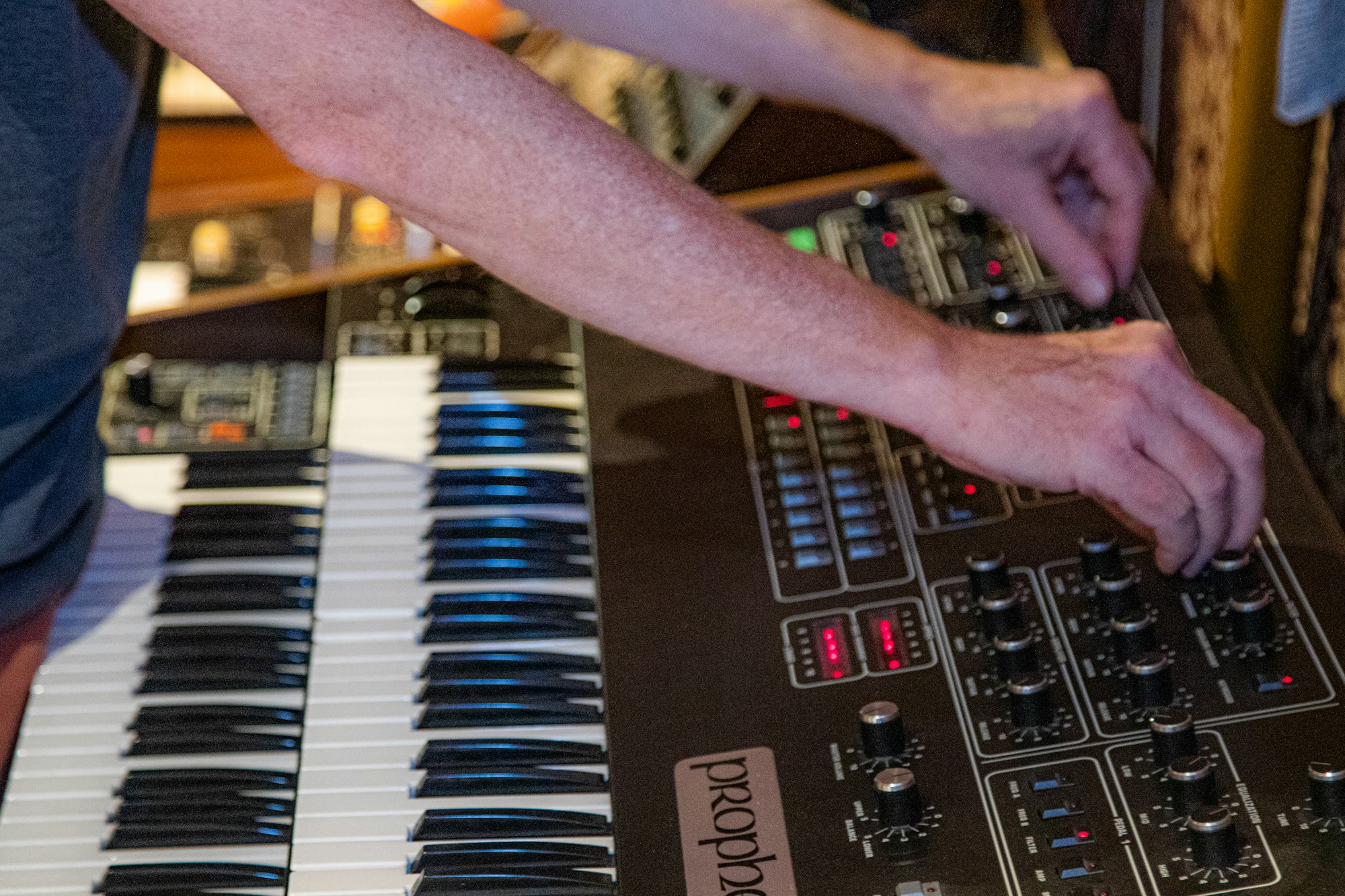Words by Amon Warmann
There have been many accomplished composers who have lent their skills to the Assassin’s Creed franchise over its 13 year history, but only Jesper Kyd can lay claim to being there from the beginning. The Danish musician is a veteran of the video game world – he’s composed the scores for the Hitman series, Borderlands series, and many others – but it’s arguably Assassin’s Creed that he’s most well-known for. The first four entries in the series have his name on it, and Valhalla sees him return to the ever-popular franchise for the first time in almost a decade. As such, we were eager to learn why now was the perfect time for him to come back, what he makes on how the franchise has evolved musically in his stead, and much more.

You’ve been there from the very beginning of this franchise! What’s it been like to see the music of the franchise evolve both by your own hand and others?
It’s been amazing to see how the music of this franchise has evolved. The first Assassin’s Creed laid the blueprint foundation for a lot of ideas, including the concept of the Animus (a machine that can access genetic memories of your ancestors stored in your DNA). Assassin’s Creed 2 evolved everything on a bigger scale and with a new setting, so I created a whole new style of music, a modern take on Renaissance music. The score for its sequel Assassin’s Creed Brotherhood put the action front and centre by focusing on Ezio’s complete transformation into a Master Assassin and his campaign against The Borgias. This allowed me to expand from the female, family and romantic inspirations, to something darker in tone, brutal and intense. Finally, for Assassin’s Creed Revelations, we went to Constantinople (Istanbul) so the score also featured Greek music inspirations, while retaining Ezio’s deep ties to his family (reflected by the ethereal female vocals).
It’s been amazing to see how the music of this franchise has evolved. The first Assassin’s Creed laid the blueprint foundation for a lot of ideas.
What made you want to come back for this project?
There were two main motivations. Firstly, the setting really drew me in. I’ve been immersed in Viking culture since I was a kid and growing up in Denmark, where we have so many Viking settlements, there is a strong sense that these people were our forefathers.
Also, I’ve had some great experiences with Ubisoft Montreal, having worked with their flagship studio teams on 4 Assassin’s Creed games and Splinter Cell Chaos Theory, so I was excited to work with them again. They are extremely ambitious and a pleasure to work with.
How long did you spend working on this project and how much music did you create?
I wrote about 3 hours of music and worked on the score for about a year. In games you don’t re-use music or themes that often so the 3 hours of music is made up of all different themes and tracks. In that sense it feels like a lot of music that needs to be invented versus, for example, working on a TV show or film where you are able to re-imagine themes and cues for different scenes throughout the score. In games you usually have to create something new for every part of the game. These open-world games are so big, they could take 100 hours to complete.
When you come to begin your initial ideas for a score, where do you start?
I start with establishing what’s most important. In this case the setting was the most important consideration and creating an updated, yet authentic musical experience became my focus. As we were writing the score, we started learning more about the story which is then weaved into the score. When scoring the cinematics, it’s all about story and it was helpful to compose those toward the end of the project since the renders are completed and you also have a good sense of what the instrumentation and sound of the score should be. I spent a lot of time experimenting with ideas and working on creating a lot of depth in the music. It’s really important that the music feels as fresh and unique as possible, especially since people tend to spend a long time playing these types of games

Was there any particular sequence in AC: Valhalla that you were excited to score?
I had a lot of fun working on all the music I wrote for the game but I especially enjoyed scoring the cinematics since they were so emotional and dramatic. Also, working on open-world games gives you a ton of freedom as a composer. We were able to fully explore the limits of the Valhalla sound in full 3-4 minute cues and this gives you an enormous amount of creative freedom. It’s almost like writing concert music. The exploration music for all the night settings was especially inspiring to write.
You’ve been playing in the video game world for a long time. How do you keep pushing yourself from project to project?
Well, that all comes down to the projects I chose to work on. First of all, I try not to repeat myself. I like to get involved with projects where I see an opportunity to push myself further. There are so many great fantasy and sci-fi titles on the market and a demand for original sounds allows me the opportunity to really push things forward on the majority of the titles I work on.
I try not to repeat myself. I like to get involved with projects where I see an opportunity to push myself further.
What’s something that you learned while crafting the first Assassin’s Creed score that served you well on this project?
The effect the Animus (a virtual machine time travelling device) has on the music score was determined on the first Assassin’s Creed and it’s something I discussed a lot with the original team. In the game you play through these memories which are essentially a simulation created in the Animus. To remind you that the experience takes place in a simulation, I filtered the acoustic performances in many different ways and the use of more electronic instruments are also part of this sound. So this kind of filtering effect, that is present in the live performances, is a big part of my musical approach for Assassin’s Creed. For Valhalla, this evolved to the point where all my music in the game is now based on live performances and then tweaked and filtered. This gave the score a really authentic vibe while also using modern methods to create the music.
You worked with Sarah Schachner on the theme. What’s the secret to a healthy collaboration? Do you have any specific example when you worked something out together?
This was a unique collaboration since we both worked on the main theme together. Once I felt I found a theme idea that was true to Eivor and the story of Valhalla, I passed it on to Sarah for her to continue working on and add her own ideas. It was great to see the direction where Sarah took my initial ideas and it was especially interesting to hear parts of my melody played by Sarah in double tempo. The theme would not have sounded the same had we not worked on it together. That was really cool to see it develop. Also, Einar’s vocal contribution was fantastic and it’s great to hear him lending his voice to the theme. This was the first time I’ve collaborated with another composer on the main theme but I feel the secret to any good collaboration is to learn to let go and share ideas back and forth.
Do you have a favourite track from your work on the franchise?
Home in Florence from Assassin’s Creed 2 always puts me in a good mood :) From Assassin’s Creed Valhalla, my current favourite track is Kingdom of Wessex. It was great to work with Melissa Kaplan again (the vocalist on “Ezio’s Family”) and this track for me really embodies the sound of Assassin’s Creed.
Have you seen much change in the industry when it comes to composing for game?
Over the years the games have gotten bigger and you now work with audio departments that have a lot of resources to have the music implemented. Increasingly I see there are also a lot of bands and artists working in the game industry today compared to, say, 10 years ago. However, for me, I have always focused on taking my sound in new directions and mixing unusual music styles together and I still embrace the same philosophy when working on projects today.
Hitman 2: Silent Assassin was my first orchestral score and there were a lot of things I needed to learn about the orchestra in order to write that score.
Is there anything you miss from the old days that you wish they still did now?
When I’m invited on a project, I’m encouraged to push things as far as possible. This is what I’ve done with most of my scores so that’s usually why I’m hired. So as long as the willingness to experiment is still part of the project brief, I don’t miss the old days. Things were simpler back then since and we have learned so much. But we also have more resources now and the implementation of the music is much better.
Which score has pushed you the most and taught you the most about yourself?
Hitman 2: Silent Assassin was my first orchestral score and there were a lot of things I needed to learn about the orchestra in order to write that score. Assassin’s Creed 2 was such an unusual time period to be writing in back in 2008. No one was making this kind of music back then and I really had to come up with a lot of new ideas in order to make a modern Italian Renaissance music style. More recently, Assassin’s Creed Valhalla has taught me a lot about writing and performing a range of different music instruments such as Rebec, Crwth, Morin Khuur, Metal Drums, Tagelharpa and Tagelharpa Cello.
Is there a recent video game score that’s really impressed you? If so, why?
I tend to pay more attention to the music of film and TV and one of my recent favourites has been the score for the TV show DARK.
What’s the best advice or feedback a video game director has given to you?
My favourite feedback is when I’ve taken something too far and I’m asked to bring it back. That confirms that I‘m challenging myself with the score and atmosphere of the project.
What can fans of Assassin’s Creed expect from the Valhalla score?
Fans can expect an atmospheric score that embraces the realism and authenticity of the Viking age while at the same time mixed with a modern, updated electronic sound, processing and filtering acoustic performances to fulfil the Animus-inspired sound of the Assassin’s Creed universe.
